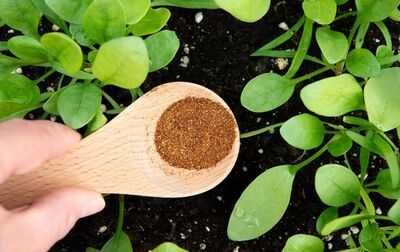It turns out that cayenne pepper doesn't just enhance your curries, soups, stir-fries and hot sauces. The pungent red powder is actually a powerful deterrent for one of Britain's most notorious pests.
A winter of rat infestation has been predicted, and UK homes are the ideal havens of warmth and shelter for these pesky creatures. Known to damage properties, contaminate food and spread diseases, the clever creatures are extremely adaptable, cautious and fast-breeding. But whether they are chewing up your gardens or your walls, prevention is your best defence against rats. And the good news is that it takes just a few household ingredients.
In the colder months like November, rats are of course avidly seeking out food and water sources, so alongside a natural deterrent, you'll also want to make sure to keep on top of overflowing bins, spilled food and empty takeaway containers. Waste expert Miroslav Radov from Rainbow Rubbish Removals warns that "they will eat almost anything," therefore, it's crucial to eliminate any food and water sources they could feed off.
When it comes to introducing natural solutions, rats dislike cayenne pepper in particular due to its strong and spicy scent and taste - it often causes humans to sneeze and their tongues to burn, so just imagine the overwhelming effect it has on these small mammals. Lee Gardner from Project Diaries on YouTube even managed to concoct his own powerful spray-bottle solution after he spotted some mysterious carnage that had happened overnight in his own backyard.
Assuming it could only have been a fox, a rabbit, a hedgehog, or even a rat or a mouse, he set to work on creating his "completely safe and organic homemade repellent" - he simply threw in some fresh mint leaves, garlic granules and of course cayenne pepper into a bowl of boiled water and ran it through a stocking into a spray bottle.
It turns out that whether you use cayenne pepper or peppermint and eucalyptus oils, they help to create an unbearable environment for rodents. While you can simply apply these in areas where rats are likely to enter, such as in cupboards and even around bird feeders, the trick is not to rely on one method alone, as rats could become accustomed to the smell and enter if food is available.
As well as these, as emphasised by the experts, homes should be kept clean, good airflow should be maintained and sources of moisture and damp should be kept under control. Essentially, in addition to natural repellents, limiting the potential for rat habitats is super important.
You may also like

Trump slaps additional 10 pc tariffs on Canada over ad dispute (Lead)

Mexico GP starting grid as Oscar Piastri flops again and driver hit by FIA grid penalty

Snooker news: Judd Trump beats Mark Allen to reach Northern Ireland Open final

Trump threatens Canada with additional 10 pc import tax over not removing anti-tariff ad soon

"Callousness of ruling government": BRS' Dasoju Sravan on Kurnool bus accident







